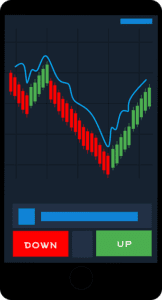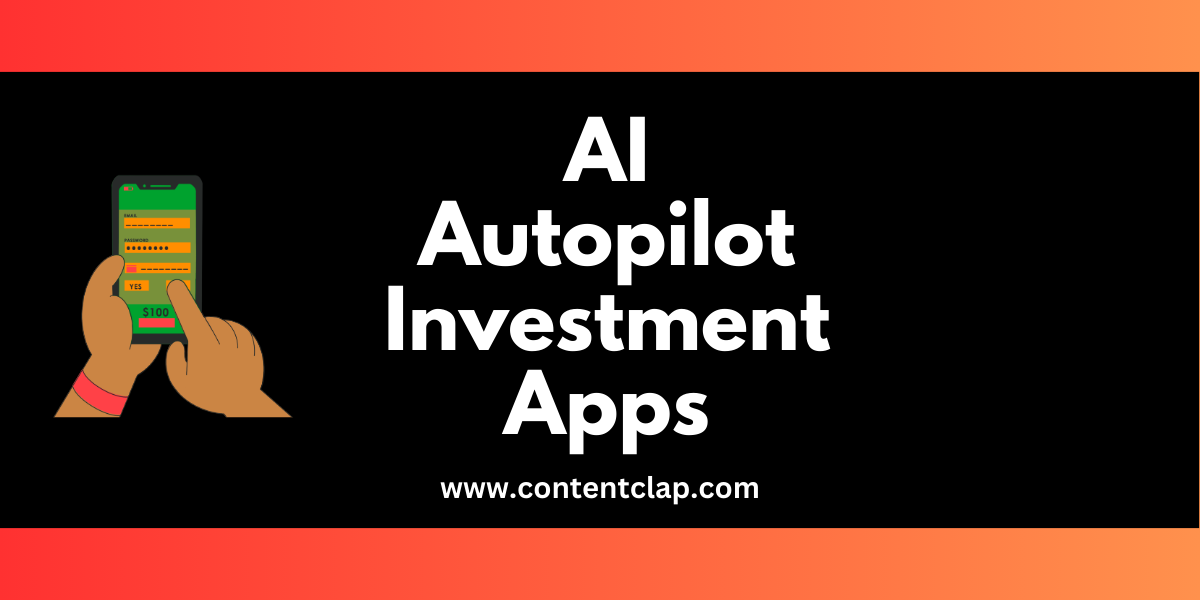AI Autopilot investment apps, also known as robo-advisors, are platforms that provide automated investment services.
These apps utilize sophisticated algorithms and machine learning techniques to autonomously manage investment portfolios, offering convenience, efficiency, and potentially higher returns to users.
The emergence of Artificial Intelligence (AI) has brought about significant transformations, particularly in the way people manage and invest their money.
One of the most notable innovations in this domain is the development of AI autopilot investment apps, which have gained momentum in the United States financial landscape.
AI Autopilot Investment Apps Functions
AI autopilot investment apps leverage vast amounts of data, predictive analytics, and machine learning algorithms to make investment decisions on behalf of users.
These apps are designed to streamline the investment process, eliminating the need for active management while optimizing portfolio performance.
By continuously analyzing market trends, economic indicators, and individual preferences, AI autopilot apps can adjust asset allocations, rebalance portfolios, and even execute trades in real-time, all without human intervention.
There are two main ways autopilot investment apps can function:
1. Robo-advisors with Autopilot Features: These apps use algorithms to analyze your financial situation and risk tolerance, then build and manage a diversified portfolio based on your goals.
Some robo-advisors may offer an “autopilot” feature that allows for automatic rebalancing and contributions.
2. Copy-Trading Apps: These focus on mimicking the trades of other investors, especially those with a strong track record.
Pro & Cons
- Robo-advisors:
- Pros: Provide
diversification and a data-driven approach, often with low fees.
- Cons: Limited customization
compared to actively managed accounts.
- Copy-Trading:
- Pros: Potentially high returns if copying successful investors, easy to use.
- Cons: Past performance doesn’t guarantee future results, relies on another person’s decisions, and may have fees for both the app and the underlying investments.

How AI Autopilot Investment Apps Work
1. User Profile Creation: Users typically start by creating a profile where they provide information about their financial goals, risk tolerance, investment timeline, and other relevant factors.
2. Portfolio Recommendation: Based on the user’s profile, the robo-advisor algorithm generates a personalized investment portfolio recommendation. This recommendation may include a mix of stocks, bonds, ETFs (exchange-traded funds), or other assets.
3. Automated Portfolio Management: Once the user approves the recommended portfolio, the robo-advisor platform automatically manages the investments.
It continuously monitors the market and adjusts the portfolio allocation as needed to maintain alignment with the user’s goals and risk tolerance.
4. Rebalancing: Robo-advisors periodically rebalance the portfolio to ensure that it stays in line with the target asset allocation. Rebalancing involves buying and selling assets to maintain the desired mix, which helps manage risk and optimize returns.
5. Cost-Efficiency: Autopilot investment apps often have lower fees compared to traditional financial advisors since they rely on technology rather than human advisors. This can make them cost-effective options for investors with smaller portfolios.
List of AI Autopilot Investment Apps
Wealthfront is a leading robo-advisor that utilizes AI algorithms to create and manage diversified investment portfolios. It offers features such as tax-loss harvesting, automatic rebalancing, and customizable portfolio strategies tailored to individual goals.
Betterment is another prominent robo-advisor known for its user-friendly interface and personalized investment advice. It employs AI technology to optimize asset allocations, minimize taxes, and provide holistic financial planning solutions.
Acorns is a micro-investing app that rounds up everyday purchases to the nearest dollar and invests the spare change in diversified portfolios. While not strictly an AI autopilot app, Acorns incorporates elements of machine learning to enhance user experience and investment outcomes.
SoFi Invest offers automated investment solutions powered by AI algorithms, including robo-advisor portfolios and commission-free trading. It emphasizes a holistic approach to financial wellness, combining investing, saving, borrowing, and budgeting features in a single platform.
M1 Finance is a hybrid robo-advisor and brokerage platform that allows users to create custom investment portfolios or choose from pre-built portfolios called “Pies.” Its Intelligent Rebalancing feature uses AI to automatically rebalance portfolios and maintain target allocations.
Stash is a micro-investing app that offers personalized investment recommendations based on users’ financial goals, risk tolerance, and interests. While not fully automated, Stash utilizes AI-driven algorithms to suggest suitable investments and optimize portfolio allocations.
Personal Capital combines robo-advisor services with human financial advisors to provide comprehensive wealth management solutions. Its AI-powered investment algorithms aim to maximize returns and minimize taxes while aligning with users’ long-term objectives.
While primarily known as a commission-free trading platform, Robinhood also offers automated investing through its Robinhood Gold subscription service. Users can access margin investing, extended trading hours, and AI-driven insights for an enhanced investing experience.
Charles Schwab Intelligent Portfolios:
Charles Schwab’s robo-advisor platform utilizes AI technology to build and manage diversified portfolios based on users’ risk profiles and investment objectives. It offers features such as tax-loss harvesting, automatic rebalancing, and access to financial advisors.
These are just a few examples, and there are many other robo-advisors available in the market, each with its own set of features, fees, and investment strategies.
Copy-Trading Apps
A large social trading platform with a user-friendly interface. It allows you to copy experienced investors and offers a variety of asset classes.
Offers a dedicated copy-trading app called AvaSocial. They support various asset classes including stocks, forex, and commodities.
A popular CFD broker with a copy-trading feature. CFDs are complex instruments and come with a high risk of losing money quickly.
Similar to Pepperstone, Vantage provides copy-trading via MetaTrader, ZuluTrade, and DupliTrade.
Conclusion
In conclusion, AI autopilot investment apps represent a paradigm shift in the way individuals approach investing, offering automated, data-driven solutions that optimize portfolio performance and enhance financial outcomes.
As these technologies continue to evolve and gain acceptance, they are poised to reshape the landscape of personal finance, making investing more accessible, efficient, and rewarding for users across the United States.
Disclaimer: The information for this written post has been taken from various sources on the internet. While we strive to provide accurate and reliable information, but cannot guarantee the accuracy or completeness of the information. Please use your discretion before making decisions or taking action based on that information. Therefore, any reliance you place on such information is strictly at your own risk.









